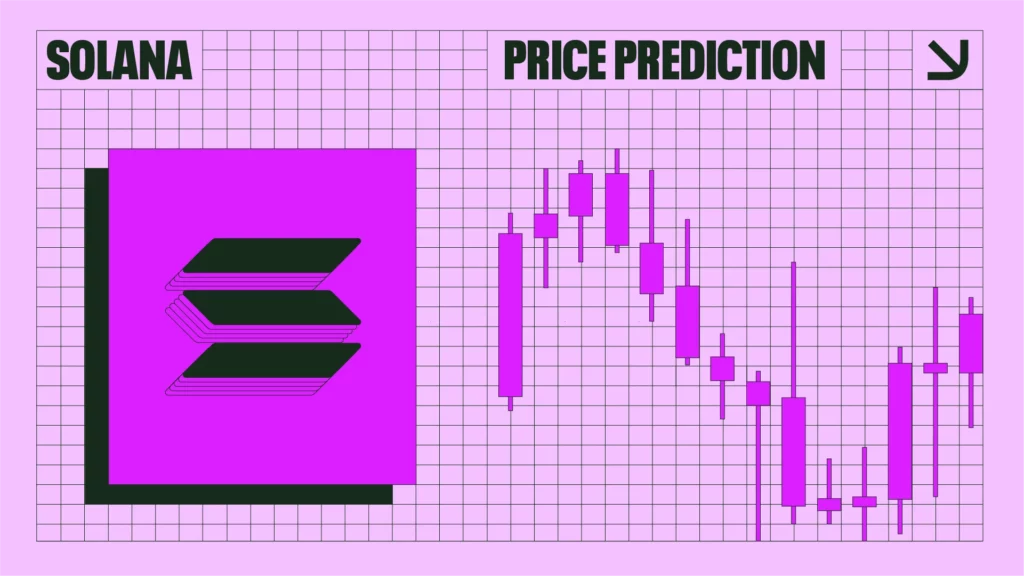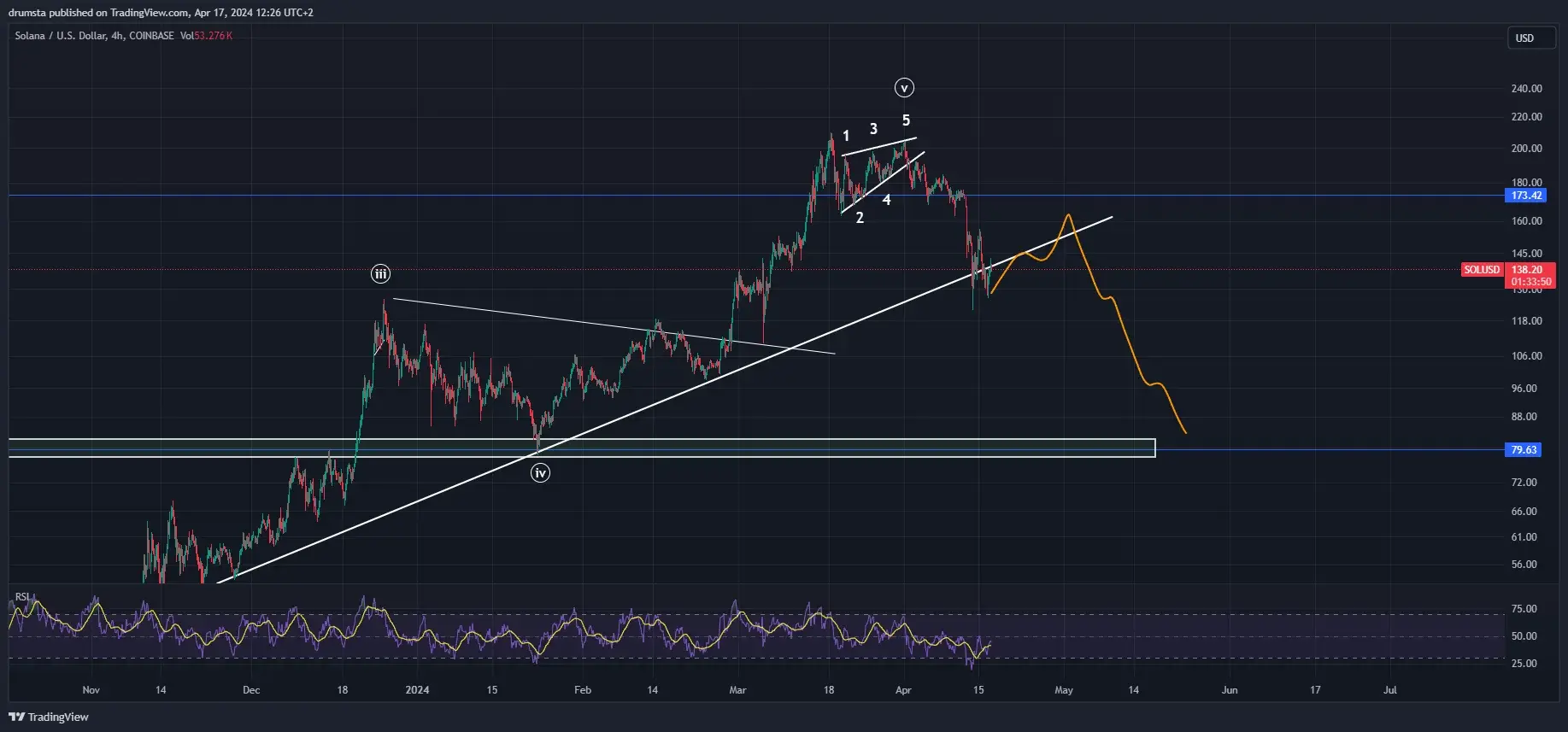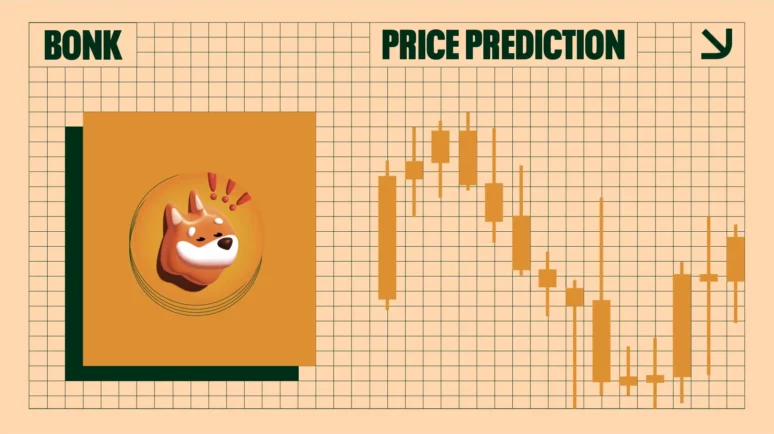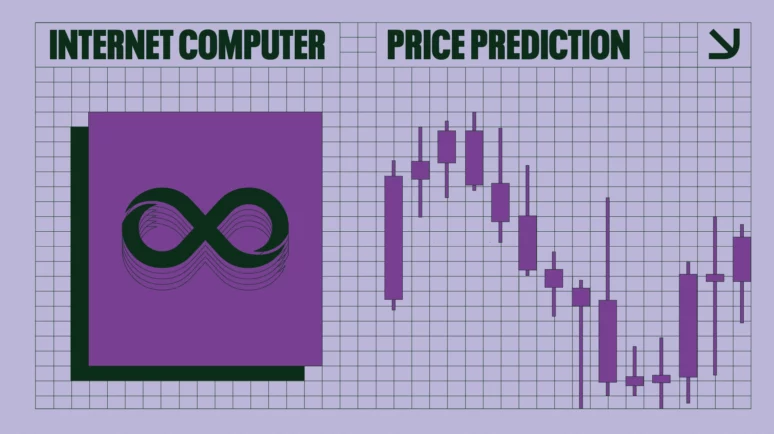Solana Price Prediction 2024: Can v1.17.31 Boost SOL?

What's next for Solana?
Key Takeaways
- Solana’s SOL coin is one of many cryptocurrencies accused of being an unregistered security by the SEC.
- Solana uses something called a Proof-of-History consensus mechanism to add blocks to its blockchain, mint coins, and reward users.
- The crypto exploded in 2021, had a very challenging time in 2022, and mounted a recovery in late 2023.
- One Solana price prediction says the coin can reach $768.73 next year.
Solana has managed to make something of a recovery after it suffered an outage in February 2024. On February 6, the network went down for five hours. Although it was its first outage in nearly a year, it was the 11th such event in two years.
However, the SOL coin has managed to make a recovery and is back over the psychologically-important $100 mark.
The news came after the blockchain saw more new users than ever before in January. The relative success of the BONK memecoin, coupled with the launch of the Jupiter (JUP) decentralized exchange (DEX) brought 12.69 million new users to the platform.
Ups and downs in 2023
The United States Securities and Exchange Commission (SEC) accused Solana of being an unregistered security when it sued the Binance and Coinbase crypto exchanges in early June. However, the news that a court found that Ripple’s XRP coin was not an unregistered security, so long as it was being sold on exchanges, may have given SOL’s holders hope.
In September, though, the news that Visa would be sending the USDC stablecoin via Solana could also have brought it to the attention of potential investors.
Later on in the month, the 1.16 update saw it get a price push which continued into October before it enjoyed a significant resurgence in November.
December saw more upward movement. Renewed interest in the platform and a market buzzing about spot Bitcoin exchange-traded funds (ETFs) saw it reach its highest price in more than 18 months.
However, there was a downturn, but investors will be hoping the release of the v1.17.31 upgrade will boost interest. The new development aims to deal with the congestion that has plagued that platform.
By April 17, with the market flourishing as Bitcoin reached record levels, SOL was worth about $138.80.
Solana did not immediately respond to a request for comment.
But what is Solana (SOL)? How does Solana work? What is Solana used for? Let’s take a look and see what we can find out, and also take a look at some of the Solana price predictions being made as of March 7, 2024.
Solana Coin Price Prediction
Let’s take a look at some of the Solana price predictions that were being made as of April 17, 2024.
Keep in mind that price forecasts, especially when it comes to something as potentially volatile as cryptocurrency, very often end up being wrong. Also, many long-term crypto price predictions are made using an algorithm, which means that they can change at any time.
| 2024 | 2025 | 2030 | |
|---|---|---|---|
| Prediction #1 | $300.52 | $325.37 | $1,019.54 |
| Prediction #2 | $149.78 | $768.73 | $0 |
| Prediction #3 | $105.79 | $135.65 | $1,673 |
First, CoinCodex had a somewhat mixed short-term Solana price prediction.
The site said that it would drop to $137.55 on April 22, but would recover to $156.06 on May 17 6. The site’s technical analysis was bearish, with 17 indicators sending pessimistic signals and 14 making bullish ones.
Solana Price Prediction for 2024
On other sites, DigitalCoinPrice suggested that Solana could reach an average of $300.52 this year. CaptainAltCoin said SOL would reach $149.78 by December. Meanwhile, CryptoPredictions.com predicted it to get to $142.08 by the end of 2024.
Solana Price Prediction for 2025
Moving on, DigitalCoinPrice suggested that SOL could trade at around $325.37 in 2025. CaptainAltCoin predicted it would reach a staggering $768.73 next year.
CryptoPredictions.com, on the other hand, was bearish, saying it would close the year at about $135.65.
Solana Price Prediction for 2030
In terms of a more long-term Solana price prediction, DigitalCoinPrice claimed that it would be worth $1,032.32 by the start of the next decade. CaptainAltCoin said there was a “50-50” chance SOL would collapse into nothingness, potentially becoming a de facto dead coin by then. PricePrediction.net was far more bullish. Its SOL price prediction said the coin would trade at $1,673 in 2030.
Google Gemini AI Price Prediction for Solana (as of April 17)
Google’s Gemini AI platform gave the following price prediction for Solana on April 17. Please remember that the exact price prediction of an asset or cryptocurrency in the future is nearly impossible to achieve. Additionally, artificial intelligent price predictions are predicated on past performances and are in no way entirely accurate.
Short-term (Next few months):
- Prediction: Mild increase (around $138.97 by April 18, 2024) with some volatility.
- Reasons: Current market sentiment is mixed (Greed Index at 65), with some technical indicators suggesting a slight rise. However, the broader crypto market can be unpredictable, and Solana has experienced recent price drops.
Medium-term (Next 1-2 years):
- Prediction: Possible range of $150-$200 per SOL.
- Reasons: Solana’s potential for wider adoption in DeFi and NFTs could drive demand. However, overcoming scalability concerns and competition from other smart contract platforms will be crucial.
Long-term (5+ years):
- Prediction: More variable, with estimates ranging from $250 to $1000 per SOL.
- Reasons: Long-term success depends on factors like the overall growth of the crypto market, widespread Solana blockchain adoption, and the team’s ability to address scalability challenges.
It added: “These are just predictions, and the cryptocurrency market is highly volatile. Do your own research before making any investment decisions.”
Advantages and Disadvantages of Solana
Blockchain analytics company Messari released its quarterly report on Solana . In it, they highlighted that Solana had experienced growth across a wide range of metrics, and outlined some key advantages and disadvantages of the blockchain.
They found Solana had
- An average market cap of $86.4 billion, up year-on-year from $7.9 billion and up from $43.8 billion quarter-on-quarter.
- Quarterly revenue of $98.8 million, up from $3.7 million from the same time in 2022, and up from $13.7 million the previous quarter.
- An average of 596,900 daily fee-paying customers, up from 190,300 quarter-on-quarter and up from 129,300 year-on-year.
- Had $86.4 million raised, up from $57.1 million quarter-on-quarter and up from $20 million year-on-year.
Advantages of Solana
Messari said that Solana had
- A widespread and active user base.
- A strong roadmap for future development.
- Become a crucial place for memecoin traders and retail users.
Disadvantages of Solana
Messari also said that Solana
- Saw the amount of SOL staked fall significantly.
- Was becoming less diverse.
- Had inefficiencies in its fee markets.
Solana Coin Price History
Now, let’s examine some of the highlights and lowlights of the Solana price history. While we should never take past performance as an indicator of future results, knowing what the coin has achieved can provide us with some very useful context if we want to make or interpret a Bitcoin price prediction.
In the first half of 2020 SOL it was worth about $0.90. It hovered around the $2 mark for the rest of the year, but things shot up in early 2021 when the market blossomed and SOL reached a little under $50 in April.
Although there was a decline from this, it came back into its element in August of that year, when it broke through the $100 barrier.
A downturn was inevitable, but the recovery it made in November was notable, as it reached an all-time high of $260.06 on November 6 as the market pumped following Bitcoin (BTC) reaching record levels.
After a strong 2021, 2022 was a year to forget. Market conditions saw the coin, which closed the year below $200, fall below $100 in March, recover in April, and then collapse again. The bankruptcy of the FTX exchange had a big impact on the price of SOL, as it was suggested that FTX had invested a significant amount of money in Solana, and SOL crashed to close the year below $10.
Solana in 2023 and 2024
2023 was mostly about recovery, with the coin topping $25 at points in February and April. However, the news of the SEC’s lawsuit saw things go down and it reached a low of $13.38 on 10 June. This drop coincided with the news that the Crypto.com (CRO) exchange was suspending its US institutional activities.
Over the next month, the market fought back, and the Ripple decision gave pretty much every crypto a boost. On July 14, SOL peaked at $30.06.
August 17’s news that Elon Musk’s SpaceX had sold billions of dollars worth of Bitcoin tanked the market. SOL dropped to $17.46 on September 11. However, it started to make a comeback and, on October 9, 2023, Solana was worth about $22.15.
The coin then took advantage of a crypto bull run, reaching $63.42 on November 11. By December 1, it was worth about $61. December was a good month for the coin. The news that it was outpacing Ethereum (ETH) for NFT sales helped it climb past Ripple (XRP). On December 23 it broke past $100 for the first time since April 2022 and it peaked at $125.19 on Christmas Day.
The coin cooled off, closing the year at $101.51, an annual increase of more than 900%.
SOL rallied at the start of 2024, reaching $106.94 on January 11 before falling to $79.07 on January 23. By February 5 2024, SOL was worth about $97. The following day, it suffered an outage and fell to a low of $93.28. Solana was back over $100 by February 8 and, on February 13 2024, SOL was worth about $114.
The crypto rally which took Bitcoin to a new all-time high saw SOL rally, too, and it peaked at $204.18 on April 1.
However, the rest of April saw a downturn and, on April 17 2024, Solana was worth about $138.80
At that time, there were about 446.7 million SOL in circulation out of a total supply of around 574 million. This gave the coin a market cap of about $62 billion, making it the fifth-largest crypto by that metric.
Solana Price Analysis

SOL is in the final part of a wave-wave sequence. If it falls below the ascending support line would confirm a bearish outlook, potentially pushing SOL to new lows.
Solana dropped to $130, with a brief spike even lower noted on the four-hour chart on April 13. Its recovery since then may have responded to this sharp decline. A short-lived recovery could follow to $160, but another downturn would be expected after it is completed.
Should this be the case, SOL might face another downturn, breaching the ascending support. If this occurs, our next target would be the significant horizontal support zone around $80.
Is Solana a Good Investment?
Solana is one of the largest cryptocurrencies out there by market cap. Its recent rise pretty much mirrors its strong performance in the second half of 2021, when it went from an also-ran to a major player.
However, when something stands up, someone will want to knock it down, and the SEC’s ongoing vendetta against crypto sees SOL firmly in the regulator’s sights, even if Judge Analisa Torres’ ruling might give some holders hope. We shall have to see what, if anything, comes of the SEC’s cases. As always, though, you will have to make sure you do your research before investing in Solana.
Will Solana Go Up or Down?
No one knows right now. Sites like DigitalCoinPrice are extremely optimistic, while the likes of CaptainAltCoin are far more bearish. Keep in mind that price predictions very often end up being wrong, and that prices can, and do, go down as well as up.
Should I Invest in Solana?
Before you decide whether or not to invest in Solana, you will need to do your research, not only on SOL, but on other, similar cryptos such as Ether (ETH) and Cardano (ADA). Ultimately, though, you will have to make this decision for yourself. Remember that prices can go down as well as up and that you should never invest more money than you can afford to lose.
Who are the founders of Solana?
Computer engineers Anatoly Yakovenko and Greg Fitzgerald founded Solana in 2017. Yakovenko had previously worked for Dropbox and graduated with a degree in Computer Science from the University of Illinois in 2003.
Who owns the most Solana (SOL)?
On April 17, 2024, an unnamed wallet held more than five million Solana (SOL).
Richest SOL wallet addresses
As of April 17, 2024, the five wallets with the most Solana were
- MJKqp326RZCHnAAbew9MDdui3iCKWco7fsK9sVuZTX2, which held 5,178,991 SOL or 1.01% of the supply.
- 52C9T2T7JRojtxumYnYZhyUmrN7kqzvCLc4Ksvjk7TxD, which held 4,371,056 SOL or 0.85% of the supply.
- 8BseXT9EtoEhBTKFFYkwTnjKSUZwhtmdKY2Jrj8j45Rt, which held 3,927,080 SOL or 0.77% of the supply.
- GitYucwpNcg6Dx1Y15UQ9TQn8LZMX1uuqQNn8rXxEWNC, which held 3,628,341 SOL or 0.71% of the supply.
- 9QgXqrgdbVU8KcpfskqJpAXKzbaYQJecgMAruSWoXDkM, which held 3,141,238 SOL or 0.61% of the supply.
Fact Box
| Supply and distribution | Figures |
|---|---|
| Total supply as of April 17, 2024 | 574,127,050 |
| Circulating supply as of April 17, 2024 | 446,732,197 (77.81% of total supply) |
| Holder distribution | Top 10 holders own 8.96% of total supply as of April 17, 2024 |
From the Whitepaper
Solana’s technical documentation, or whitepaper , says that the system is designed to be quicker and easier to use than other blockchains.
One word of warning, though. The whitepaper is full of jargon, with sentences like “When used alongside a consensus algorithm such as Proof of Work (PoW) or Proof of Stake (PoS), PoH can reduce messaging overhead in a Byzantine Fault Tolerant replicated state machine, resulting in sub-second finality times” likely to confuse the average reader.
Solana Explained
Blockchains can be slow. While this is especially true for Proof-of-Work (PoW) chains like Bitcoin, which use people solving mathematical equations to add blocks to the blockchain, it can also be true for Proof-of-Stake (PoS) chains such as Ethereum, too.
The Solana blockchain aims to solve this problem. It uses something called Proof-of-History (PoH) to grow its chain and reward its users. It promises people 2,000 transactions per second.
Solana is part of the world of decentralized finance (DeFi). DeFi is based on the idea that people would be able to access financial services without having to bother going through traditional banks. It supports a variety of decentralized applications (DApps), such as the Audius music-sharing program and the Phantom Wallet.
The SOL coin, which is used to reward the people who help run the network, powers the system. The coin can also be staked in return for voting rights, and it can also be bought, sold, and traded on exchanges.
How Solana Works
Solana’s unique selling point is its Proof-of-History consensus mechanism. This works by creating a series of timestamps, which show who held how much crypto at what particular point. In turn, this enables the data to be accurate and fair.
PoH has allowed Solana to have a range of other functions. These include
- The SeaLevel transaction processor.
- The Turbine data distribution system.
- Gulf Stream, which is used to move transaction caching across the network.
- The Tower Byzantine Fault Tolerance system, which allows it to calculate values.
- Pipeline, which also helps with transaction processing.
- Archivers, which helps with data storage.
SOL powers the system. Holders can stake it, or set it aside, in return for voting rights. People can also buy, sell, and trade it on exchanges.
Solana Attention Tracker

Here is a chart for Solana’s Google search volume for the past 90 days. This represents how many times the term “Solana” has been Googled over the previous 90 days.
FAQs
Will Solana reach $1,000?
It might do. DigitalCoinPrice says it can get there by 2030, while PricePrediction.net says it can reach four figures in 2029.
What is Solana used for?
The SOL coin supports the Solana blockchain. People can also buy, sell, and trade it on exchanges.
Disclaimer
Please note that the contents of this article are not financial or investing advice. The information provided in this article is the author’s opinion only and should not be considered as offering trading or investing recommendations. We do not make any warranties about this information’s completeness, reliability and accuracy. The cryptocurrency market suffers from high volatility and occasional arbitrary movements. Any investor, trader, or regular crypto users should research multiple viewpoints and be familiar with all local regulations before committing to an investment.


